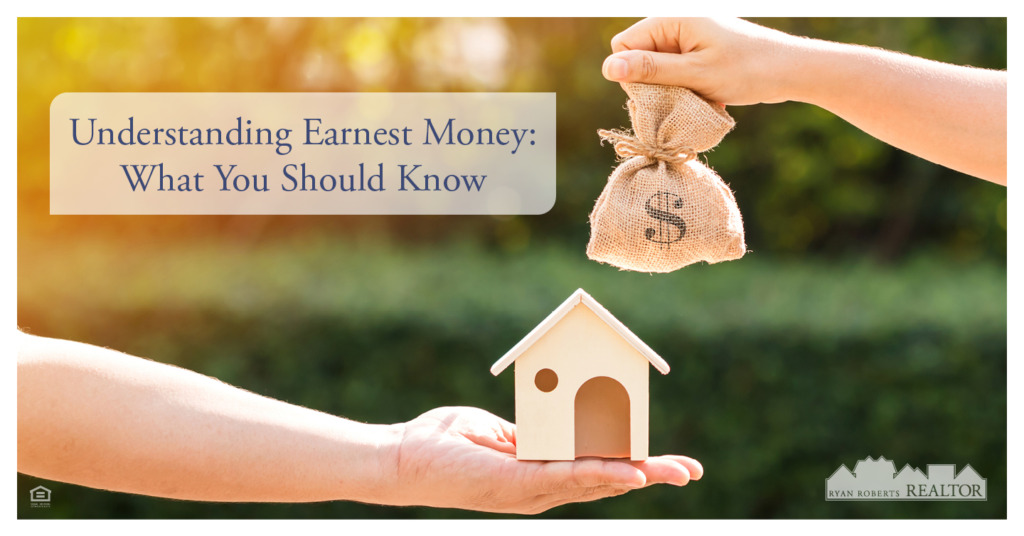
Have you ever heard the term “earnest money” tossed around real estate purchases, but you’re not exactly sure what that means? Understanding earnest money from the beginning benefits both the buyer and the seller.
What is earnest money?
The definition of earnest is to show sincere or intense conviction. Thus, earnest money is a deposit made by the buyer to the seller to prove their good intentions.
To simplify, it is a deposit made on a home you want to purchase. Think of earnest money as placing a hold on the property while financing, title searches, appraisals and inspections are being finalized.
Part of understanding earnest money is understanding the contract, or purchase agreement, both parties enter into.
A contract is written for the exchange of earnest money that clearly defines the terms for refunding the money.
Basically, the contract ensures the seller will take the house off the market while the appraisal and inspections are in progress. It can also protect the buyer from losing the deposit if certain specified conditions aren’t met.
For example, if the appraisal falls way short of the sales price, or an inspection discovers a serious defect, the buyer may be able to reclaim the earnest money.
How is the amount determined?
Another important part of understanding earnest money is knowing how the amount is determined. Typically, the earnest money is between 1 to 2 percent of the purchase price.
However, it could depend on the market. In a “hot” market, the earnest money could range between 5 and 10 percent of the sales price.
It can also be a fixed amount such as $5,000 or $10,000.
What happens to the earnest money?
The earnest money is usually paid by certified check, personal check or a wire transfer. The funds are then held in an escrow account until the closing.
If all goes accordingly, the earnest money is then applied to the buyer’s down payment or closing costs at the time of the closing.
Summary
Remember, earnest money is just one more step in the process of purchasing what could be your forever home. Are you ready to take that first step and start the search for your new home? Ryan Roberts is here to help. Get a feel for our local market, current real estate trends and local listings by exploring our blogs!


